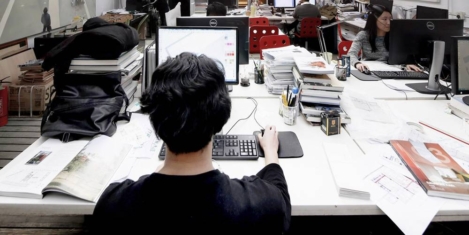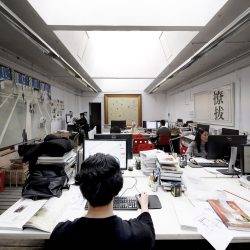January 2, 2018
Choices and expectations perpetuate higher education gap and gender pay gap, UCL research finds
 Teenagers’ own career aspirations could be perpetuating both the gender pay gap and the higher education gap, a study from researchers at UCL Institute of Education (IOE) suggests. The new research reveals that, while teenage girls are more likely than teenage boys to have high hopes of going to university and having a professional or managerial occupation, when it comes to salaries it’s the boys who are aiming highest. The research team at the IOE’s Centre for Longitudinal Studies (CLS), analysed data collected from over 7,700 teenagers in the UK who are all part of the Millennium Cohort Study, a study which has followed their lives since they were born at the turn of the century. When they were 14, the teenagers were asked a series of questions to find out their future aspirations.
Teenagers’ own career aspirations could be perpetuating both the gender pay gap and the higher education gap, a study from researchers at UCL Institute of Education (IOE) suggests. The new research reveals that, while teenage girls are more likely than teenage boys to have high hopes of going to university and having a professional or managerial occupation, when it comes to salaries it’s the boys who are aiming highest. The research team at the IOE’s Centre for Longitudinal Studies (CLS), analysed data collected from over 7,700 teenagers in the UK who are all part of the Millennium Cohort Study, a study which has followed their lives since they were born at the turn of the century. When they were 14, the teenagers were asked a series of questions to find out their future aspirations.








 Over half of the workforce (57 percent) of employees admit to officially downing tools today (Monday 18 December) as the festive period gets well and truly underway, claims new research by Peakon. The HR analytics firm’s survey of more than 2,000 people reveals that, as Christmas creeps ever closer, employees admit to a whole raft of distractions from their everyday work duties. Two in five people (42 percent) confess to clocking off to Christmas shop online, a third (35 percent) say they’re planning Christmas day and almost one in three (30 percent) are planning their Christmas break instead. One in six (16 percent) confess to indulging in the odd Christmas tipple on the job – with men twice as likely to take advantage of a festive drink than women (22 percent and 11 percent respectively). 17 percent of those surveyed leave work earlier than usual, and one in 10 (12 percent) take longer lunches. A small percentage (4 percent) confess to calling in sick. But offering staff more flexible hours for shopping and Christmas prep would help maintain performance.
Over half of the workforce (57 percent) of employees admit to officially downing tools today (Monday 18 December) as the festive period gets well and truly underway, claims new research by Peakon. The HR analytics firm’s survey of more than 2,000 people reveals that, as Christmas creeps ever closer, employees admit to a whole raft of distractions from their everyday work duties. Two in five people (42 percent) confess to clocking off to Christmas shop online, a third (35 percent) say they’re planning Christmas day and almost one in three (30 percent) are planning their Christmas break instead. One in six (16 percent) confess to indulging in the odd Christmas tipple on the job – with men twice as likely to take advantage of a festive drink than women (22 percent and 11 percent respectively). 17 percent of those surveyed leave work earlier than usual, and one in 10 (12 percent) take longer lunches. A small percentage (4 percent) confess to calling in sick. But offering staff more flexible hours for shopping and Christmas prep would help maintain performance.







December 22, 2017
Five employment law milestones from the past year we need to remember in 2018
by Lucy Gordon • Comment, Workplace
The past twelve months have been an eventful period for employment law; from the uncertainty surrounding Brexit and the rights of EU Nationals working in the UK, to the mounting attention on employee data protection as the GDPR edges ever closer. Issues of Employment Tribunal fees, holiday pay and the gig economy have similarly captivated headlines, and these significant milestones from the past 12 months are set to have a big impact on the challenges facing the sector into 2018. (more…)